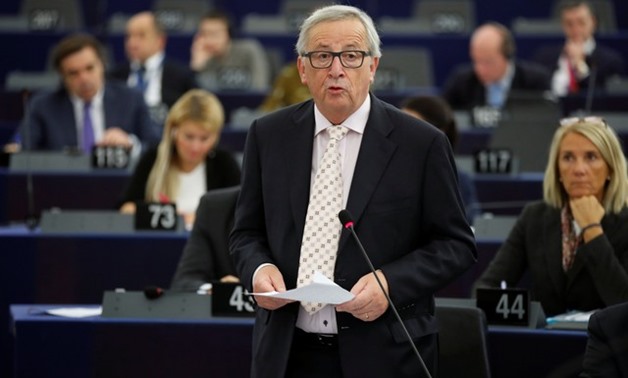
European Commission President Jean-Claude Juncker attends a debate on the outcome of the last European summit at the European Parliament in Strasbourg, France - REUTERS
BRUSSELS – 24 October 2017: The European Commission will propose measures that could reduce EU small states' veto powers, a document showed - a move meant to overcome resistance to tax reforms as the bloc aims to increase levies on digital multinationals.
EU rules demand the backing of all 28 EU states to proceed to taxation overhauls, a requirement that has long allowed low-tax states like Luxembourg, Ireland or Malta to hamper reforms.
To overcome this hurdle, the Commission said it would present a document next year outlining how to use a clause in the EU's 2009 Lisbon Treaty that allows decision-making by "qualified majority" in sectors where unanimity is usually the rule.
The so-called "passerelle" clause, enshrined in Article 48 of the treaty, could be used for "internal market matters," the EU executive said in its work programme for next year.
Commission President Jean-Claude Juncker said in September that this clause should be applied to decisions on "fair taxes of the digital industry".
The EU is considering measures to increase taxes on Google , Facebook, Amazon and other tech giants that are accused of paying too little in Europe by re-routing their profits to the bloc's low-tax states.
In its 2018 work programme, the commission said that by March it will make legislative proposals for a fair taxation of the digital economy. The move follows the EU government leaders' endorsement last week of a proposal on the issue.
Although the move is likely to irk smaller, low-tax states, it still leaves them a way out as the use of the "passerelle" clause would need to be decided unanimously at EU summits and could be blocked by the parliament of one member state.
Only if agreed by all 28 EU leaders, who usually hold general debates and are more inclined to strike political deals, the clause could then be applied to decisions by a qualified majority at councils of EU ministers who discuss more technical issues.
Juncker, a former prime minister of Luxembourg, has so far avoided proposing the use of another clause, based on article 116 of the treaty, which would strip countries of their veto powers straight away.
This could be applied to solve distortions of the internal market, like those allegedly caused by internet firms that compete unfairly with brick-and-mortar rivals by paying less tax.
The commission's vice president, Valdis Dombrovskis, told reporters in September that there was a debate on whether to remove veto powers for certain tax decisions.

Comments
Leave a Comment